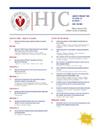数字双胞胎:重塑心血管风险预测和个性化医疗的未来。
IF 3
3区 医学
Q2 CARDIAC & CARDIOVASCULAR SYSTEMS
引用次数: 0
摘要
高度适应性和可重复使用的人工智能模型的快速发展促进了数字孪生的实施,并有可能重新定义心血管风险预防。数字孪生结合了来自不同来源的大量数据,以构建个人的虚拟模型。被称为通用人工智能的新兴人工智能模型能够处理不同类型的数据,包括来自电子健康记录、实验室结果、医学文本、成像、基因组学或图表的数据。其前所未有的能力包括:模型可轻松适应以前从未见过的医疗任务,并能使用从科学文献、医疗指南或知识图谱中提取的精确医疗语言推理和解释输出结果。将数字孪生方法与通用人工智能相结合的建议,是加快实施精准医疗、加强早期识别和预防心血管疾病的一条途径。这一建议的策略可以推广到其他领域,以推进预测、预防和精准医疗,同时促进健康研究的发现。本文章由计算机程序翻译,如有差异,请以英文原文为准。
Digital twins: reimagining the future of cardiovascular risk prediction and personalised care
The rapid evolution of highly adaptable and reusable artificial intelligence models facilitates the implementation of digital twinning and has the potential to redefine cardiovascular risk prevention. Digital twinning combines vast amounts of data from diverse sources to construct virtual models of an individual. Emerging artificial intelligence models, called generalist AI, enable the processing of different types of data, including data from electronic health records, laboratory results, medical texts, imaging, genomics, or graphs. Among their unprecedented capabilities are an easy adaptation of a model to previously unseen medical tasks and the ability to reason and explain output using precise medical language derived from scientific literature, medical guidelines, or knowledge graphs. The proposed combination of a digital twinning approach with generalist AI is a path to accelerate the implementation of precision medicine and enhance early recognition and prevention of cardiovascular disease. This proposed strategy may extend to other domains to advance predictive, preventive, and precision medicine and also boost health research discoveries.
求助全文
通过发布文献求助,成功后即可免费获取论文全文。
去求助
来源期刊

Hellenic Journal of Cardiology
CARDIAC & CARDIOVASCULAR SYSTEMS-
CiteScore
4.90
自引率
7.30%
发文量
86
审稿时长
56 days
期刊介绍:
The Hellenic Journal of Cardiology (International Edition, ISSN 1109-9666) is the official journal of the Hellenic Society of Cardiology and aims to publish high-quality articles on all aspects of cardiovascular medicine. A primary goal is to publish in each issue a number of original articles related to clinical and basic research. Many of these will be accompanied by invited editorial comments.
Hot topics, such as molecular cardiology, and innovative cardiac imaging and electrophysiological mapping techniques, will appear frequently in the journal in the form of invited expert articles or special reports. The Editorial Committee also attaches great importance to subjects related to continuing medical education, the implementation of guidelines and cost effectiveness in cardiology.
 求助内容:
求助内容: 应助结果提醒方式:
应助结果提醒方式:


